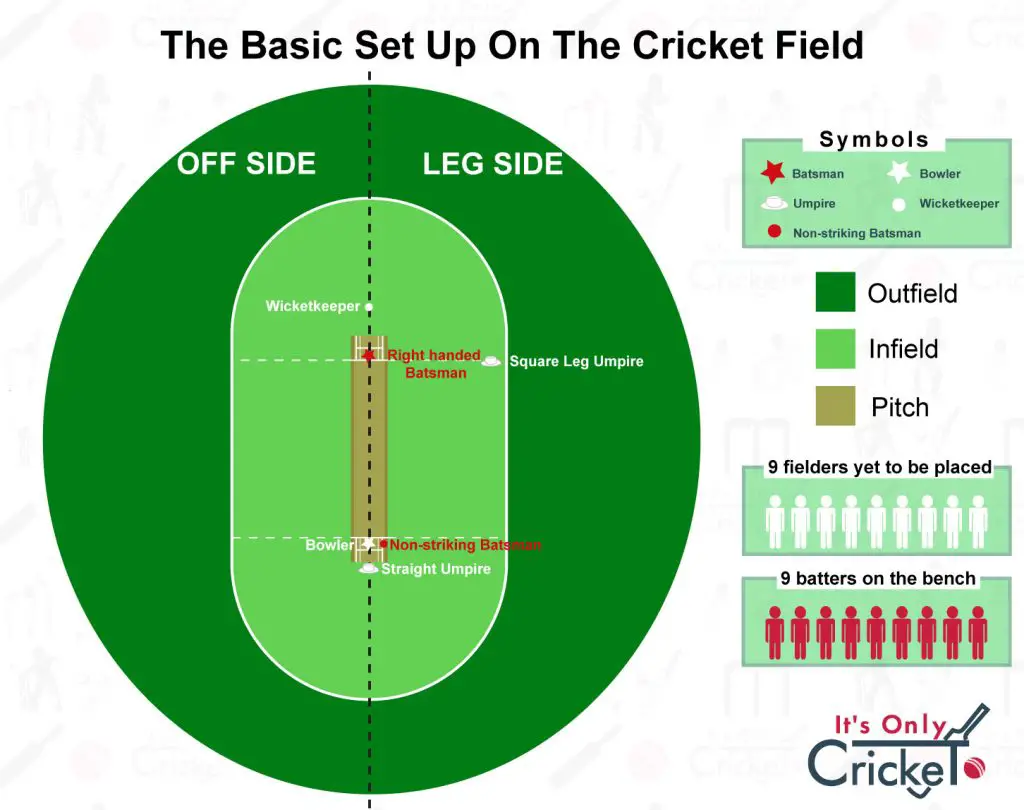
Cricket Fielding Positions Explained A Simple Guide Its Only Cricket
The pitch is 3.05 m (10 ft) wide. Wicket - the two wickets are placed on each of the bowling creases and consist of three wooden stumps and two wooden bails. The bails are positioned on the stumps.
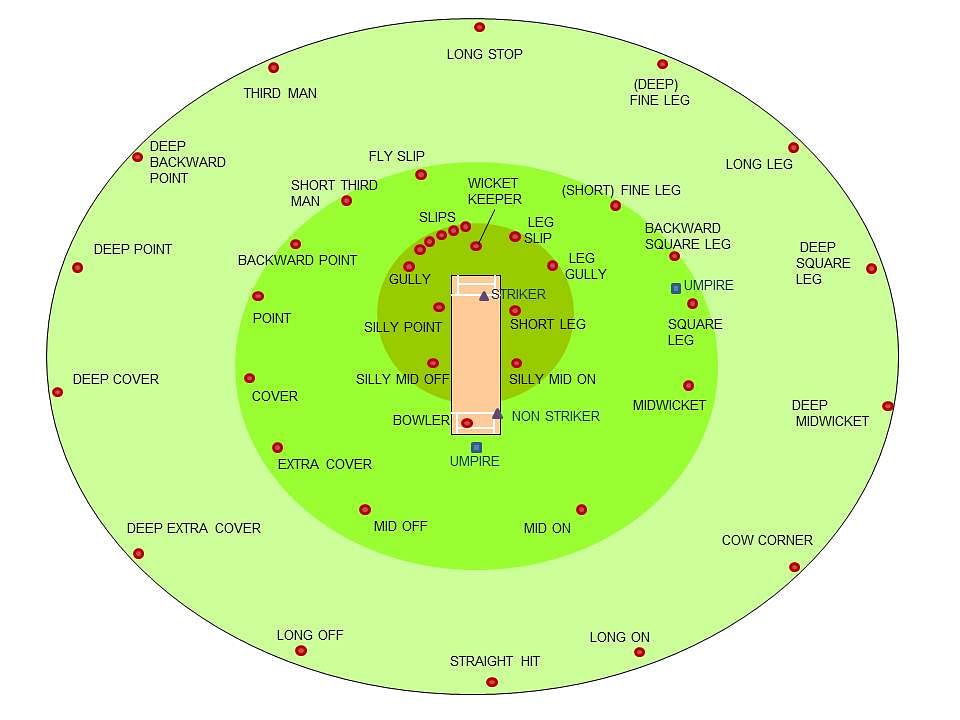
Cricket Fielding PositionsThe origins of field placement names in cricket
Wicket keeper First slip Second slip Fine leg Deep backward square leg Deep square leg Deep mid-wicket Long off Long on Deep extra cover Deep cover Sweeper
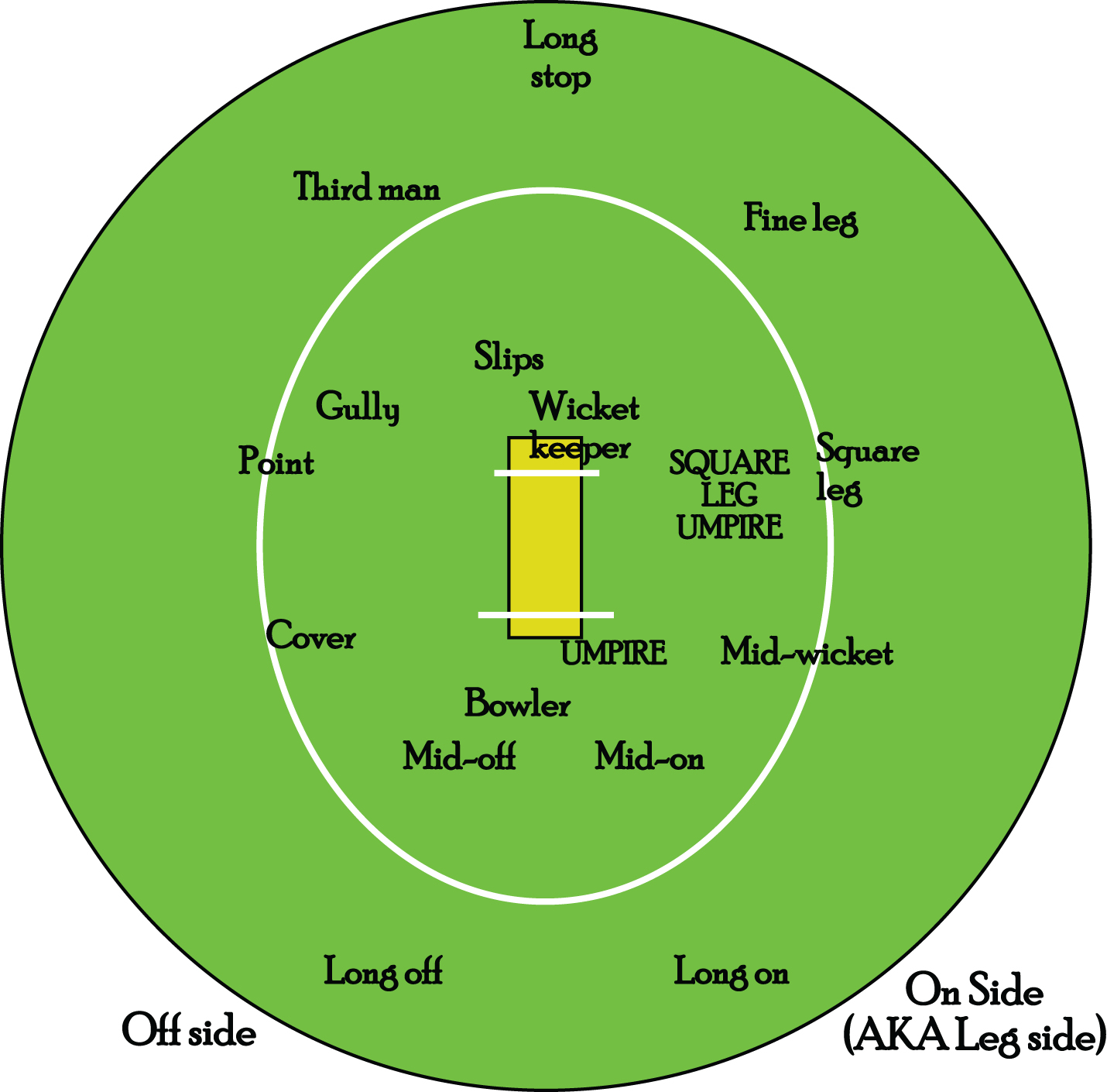
American Armchair Cricketer Outstanding in a Field, or Cricket Fielding Positions
Fielding positions in professional matches depend upon a lot of factors, like powerplay, spin bowling or pace bowling, new ball leather or old leather, the kind of the ball (whether tennis or leather) the kind of the pitch, the bowling end, the length of the boundaries, the batsman batting and some other factors too.
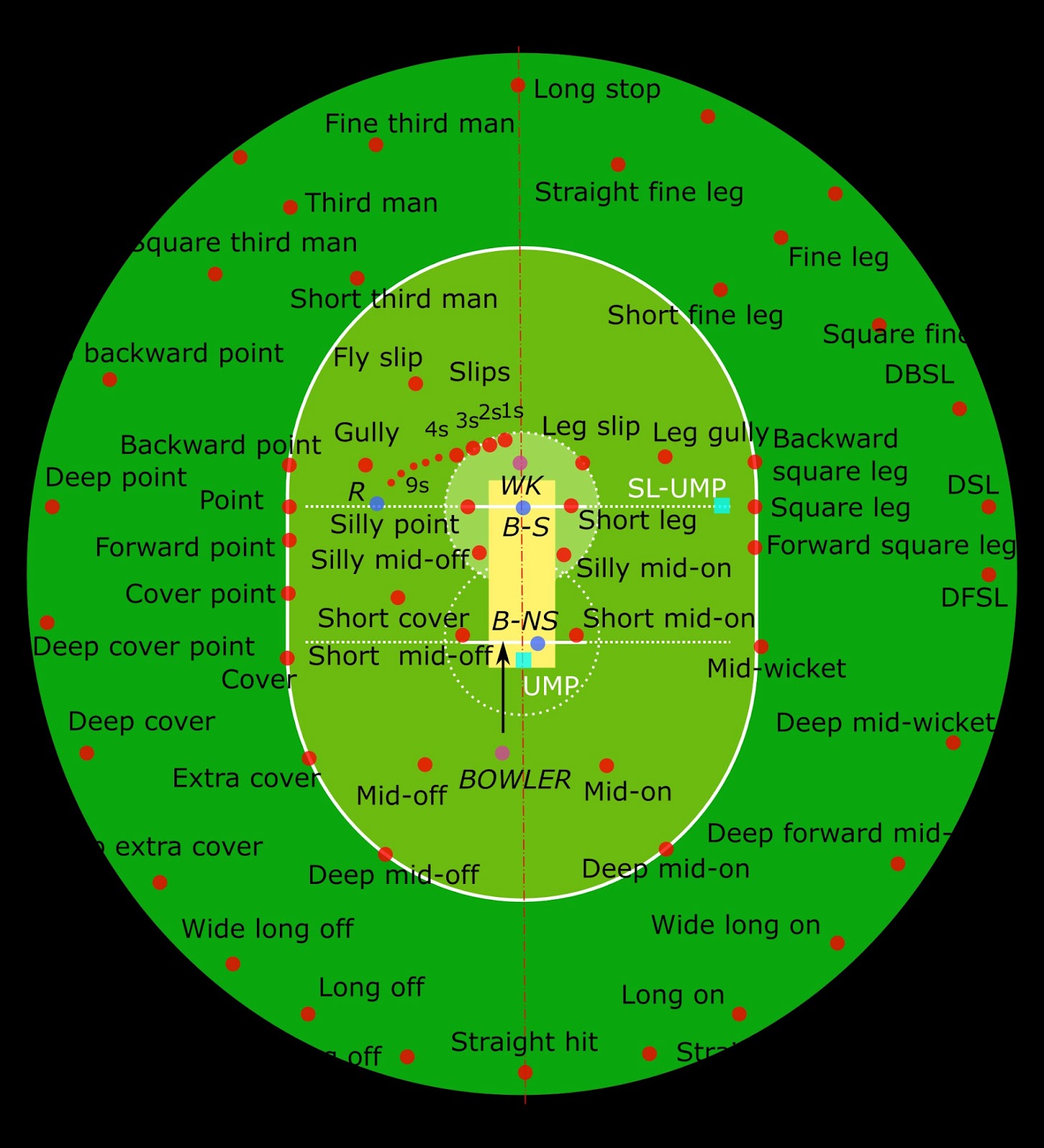
Fielding Positions in Cricket Mighty Fighters cricket club
Cricket Fielding Map: The following cricket graphic (based on a right-handed batsman) should help you understand the fielding positions despite the odd titles of some of the positions, which can be a little confusing. Believe me when I say that learning these positions and their slight variations can be somewhat difficult.
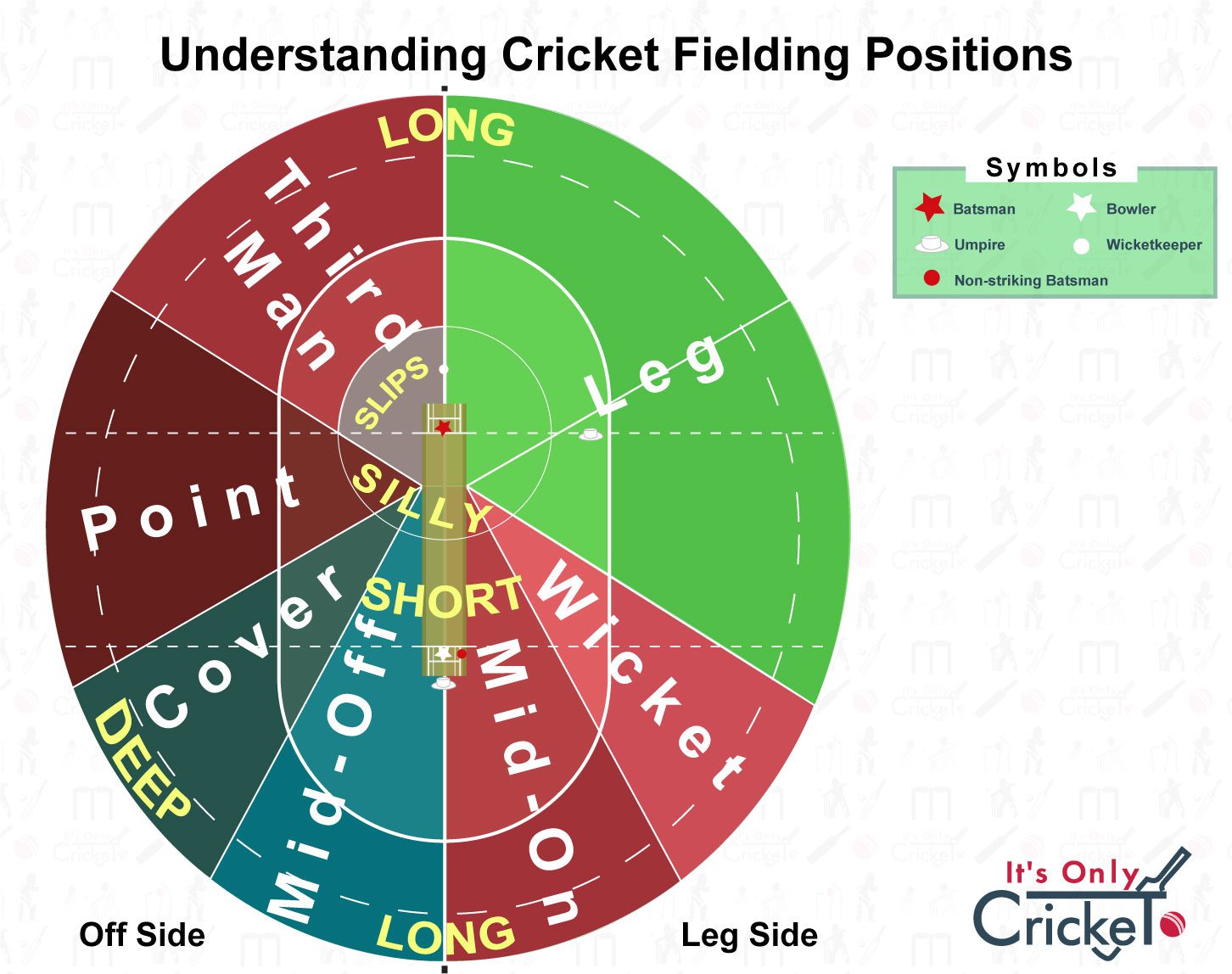
Cricket Fielding Positions Explained A Simple Guide Its Only Cricket
A guide to fielding positions. Fielding is a crucial part of cricket and there are many areas where a fielder will be placed. The position names can seem a little strange to the untrained eye. You can field in the slips, at gully, at square leg or even at silly point. When a position is described as 'deep' or 'long' as in deep mid-wicket or.
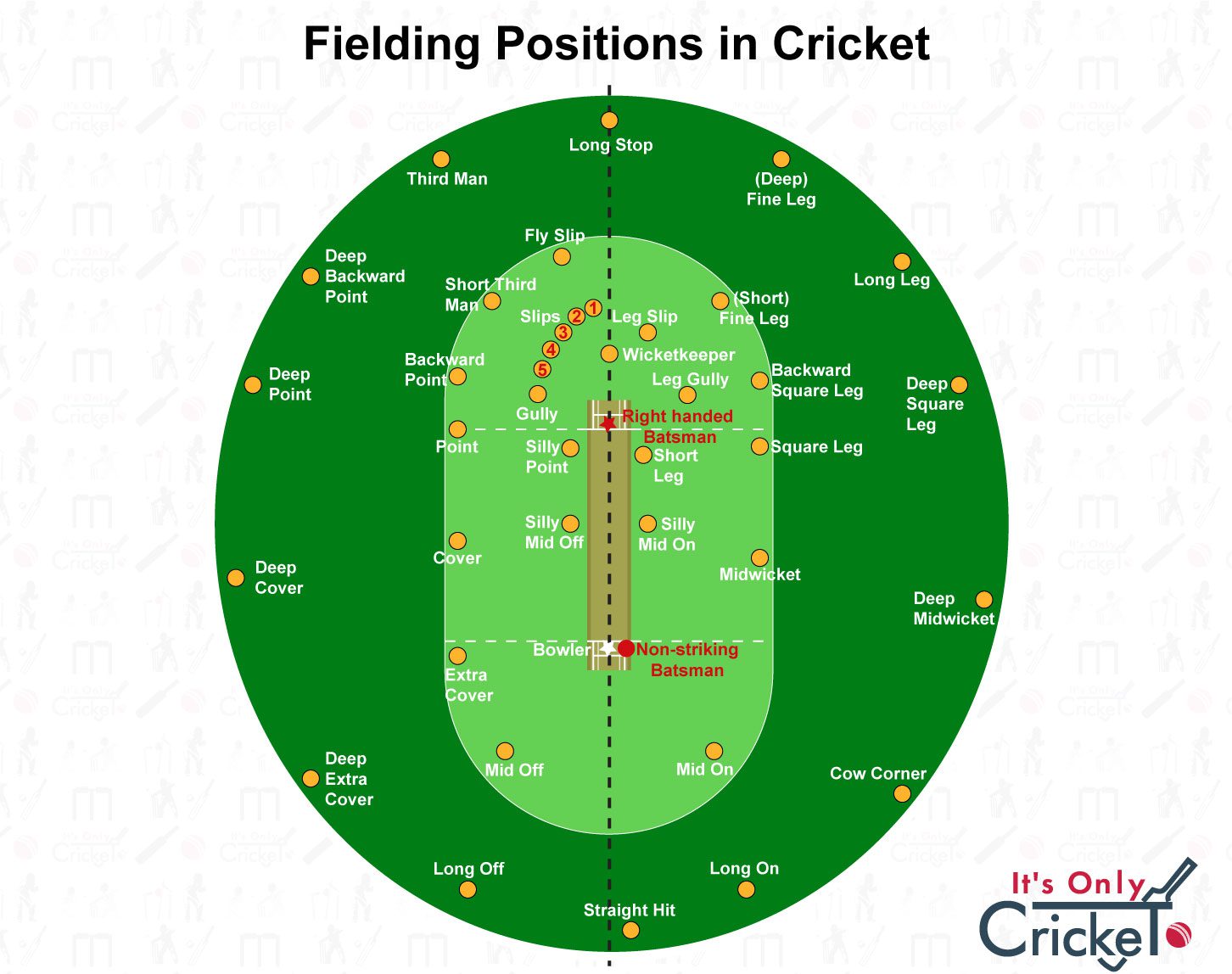
Cricket Fielding Positions Explained A Simple Guide Its Only Cricket
[1] Fielding position names and locations Fielding positions for a right-handed batter Some historic fielding position names, from the 1893 publication The reliable book of outdoor games There are 11 players in a team: one is the bowler and another is the wicket-keeper, so only nine other fielding positions can be occupied at any time.

Cricinfo
Basics Of The Cricket Fielding Positions. For the fielding or ground positions of cricket, we can divide the cricket field into 3 parts:. Cricket Fielding Positions in the close-catching infield. Insights of Cricket fielding positions 11 players: The fielders who are closest to the batsman are in this area.Everyone in this fielding position on the cricket ground will be within 15 yards or less.
A different kind of map cricket fielding positions. [765 x 1024] MapPorn
The Basics: How Many Cricket Fielding Positions Are There? First things first, let's discuss how many fielding positions there are in cricket. Each cricket team comprises eleven players, and the fielding captain assigns each player a specific fielding position. There are 10 standard fielding positions, and the 11th player is the wicketkeeper.
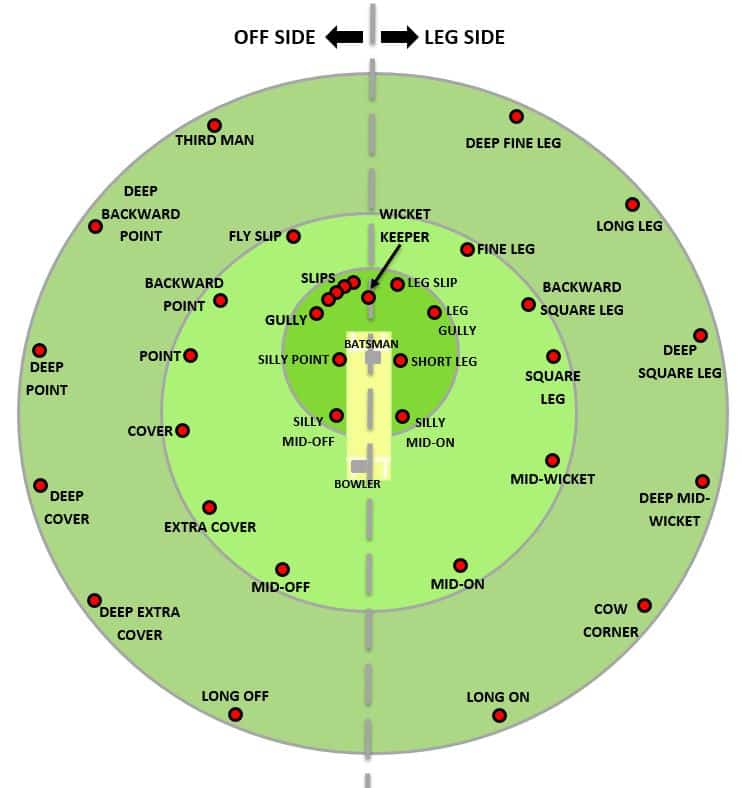
Cricket Fielding Positions & Explanations Cricketers Hub
What are the Fielding Positions in Cricket? Let's take a look at the field positions one by one to understand their significance. We will begin with Wicketkeeper and move in an anti-clockwise direction. 1. Wicketkeeper The most important position on the cricket field is of a Wicketkeeper.

Cricket Fielding Positions And Players
This Diagram Of The Cricket Field Shows You Where Each Fielding Position Is Before we get into the details of each position specifically, let's run over the basic facts about the cricket field! Basics Of The Cricket Field In terms of fielding positions, I like to divide the cricket field into 3 parts:
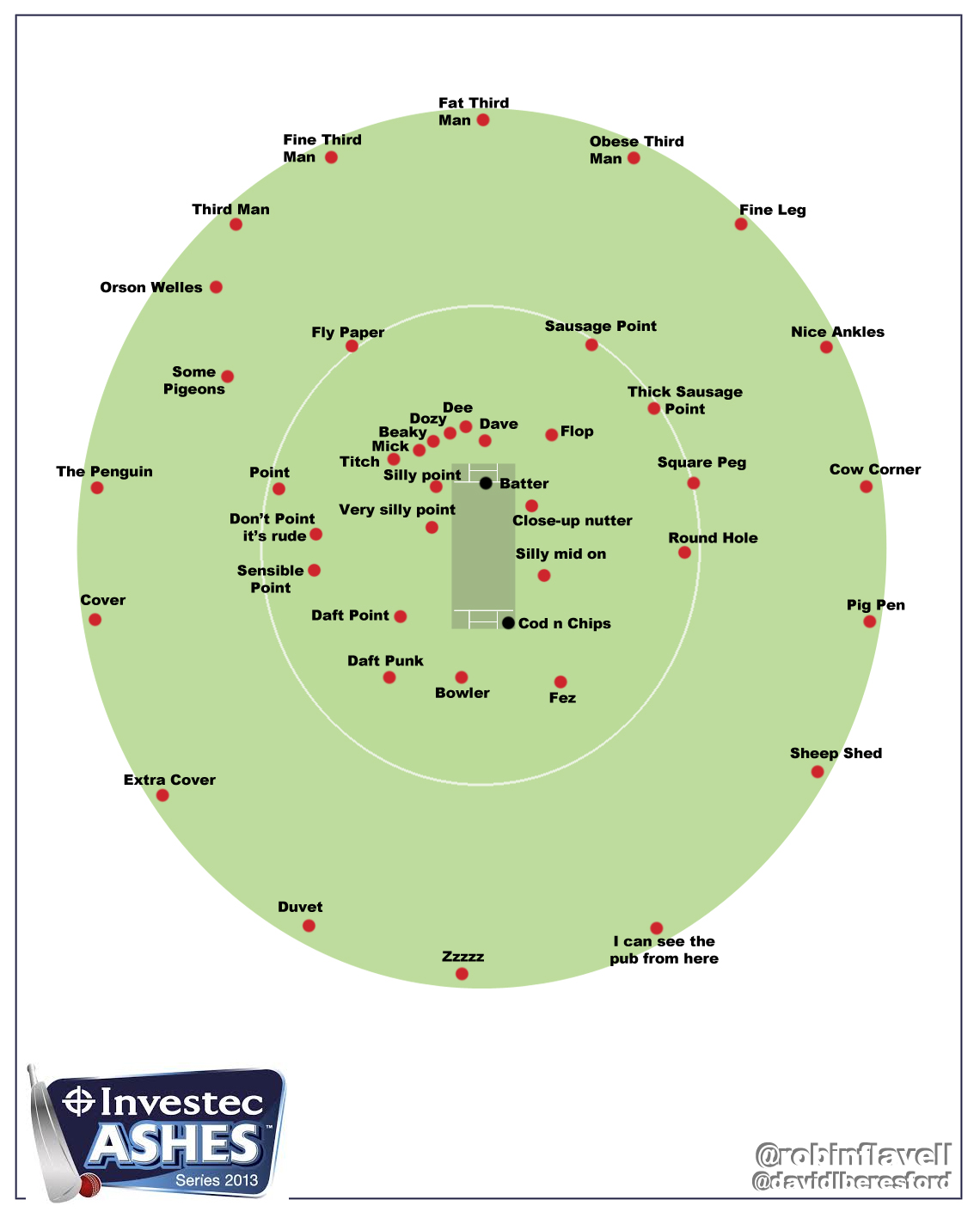
Cricket Fielding Positions For Beginners The Poke
Fielding positions / An explanation of cricket. Click here to download a large-size PDF of Cricinfo's guide to fielding (47k) Readers recommend - Curated tweets by ESPNcricinfo.

Cricket Fielding Positions Every Position Explained Village Cricket Co
English: Diagram of a Cricket ground showing various fielding positions and variations of the field as it may be set for a right-handed batsman. Changes compared to Cricket fielding positions2.svg. Closer in → nearer the batsman; very close in → very near the batsman; toward 90 deg to the pitch → level with batsman's crease

Cricket 360 Cricket Ground and Fielding Positions
Roughly at 45 degrees to the offside is the extra-cover, mirroring the mid-wicket on the leg-side. Between cover-point and extra-cover is where you would find cover. These positions like many other fielding positions are nominal, relative, and allow for reasonable latitude in rotation with respect to the batting position.

A Guide to Cricket Fielding Positions (for anyone watching World Cup today) r/coolguides
Cricket fielding positions vary in difficulty based on the skills required. Close-in positions like silly point or forward short leg are deemed challenging because fielders are at risk of hard-hitting shots. They need rapid reflexes. Similarly, slips await edges off the batter's bat, requiring acute concentration.
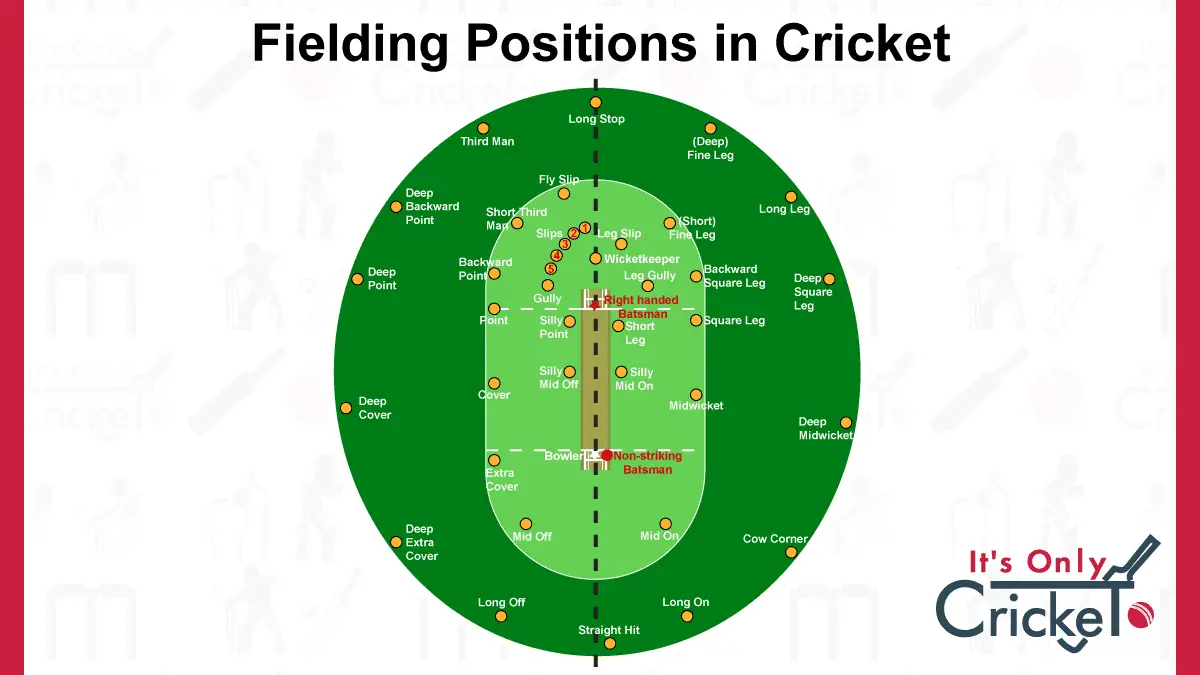
Cricket Fielding Positions Explained A Simple Guide Its Only Cricket
Find interactive analysis of cricket stats and records only on ESPNcricinfo.com. Choose a criteria and generate your own record tables.

Best Cricket Fielding Techniques & Important Positions Chart Blog Decathlon
Mid Off. Mid off is a much-used fielding position. This position is in place to try and cut off the drive, or stop batters from playing it altogether. Mid off fielders are a little bit wider than being straight ahead of the bowler, around 30-45 degrees. A fast bowler may even pass them on thor run up.